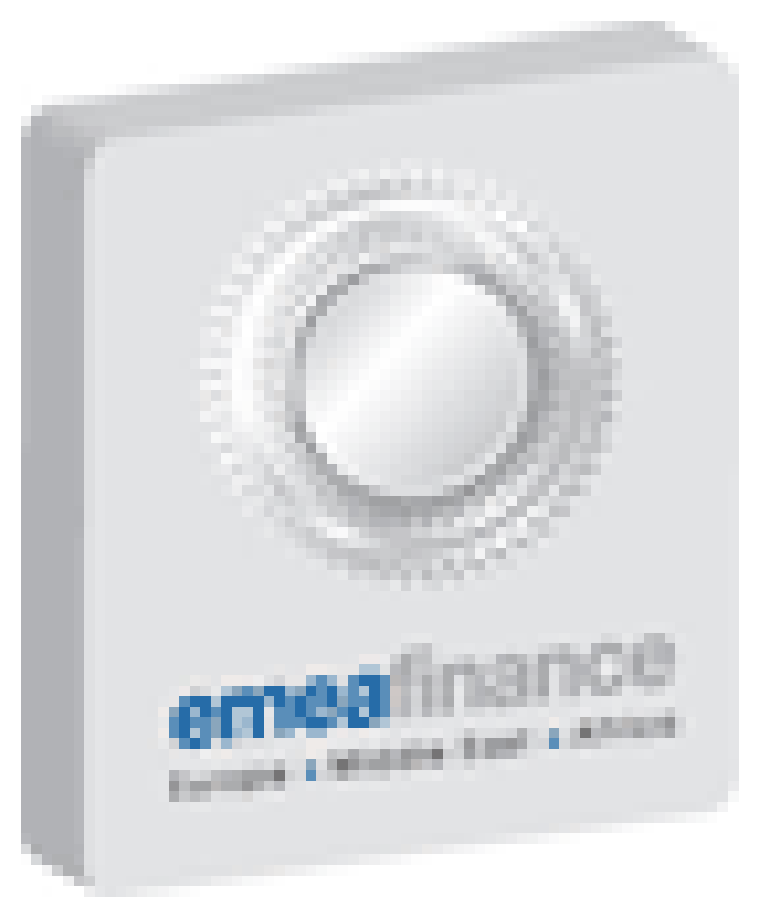Published: July 18, 2008
emeafinance has announced the winners of its inaugural awards. The awards recognize the best banks, product teams and deals in the EMEA capital markets. You can read the full results in our first issue, available today.
Deutsche Bank won the award for best investment bank in the EMEA region, because of its unparalleled strength in key markets and asset classes within the region.
It is arguably the most successful investment bank in
It arranged some of the biggest IPOs from Russia, including VTB’s US$8bn IPO, which was the biggest IPO in the world last year; the multi-billion-dollar offerings from UES spin-offs OGK 2 and OGK 3; the US$ 604 mn deal for gold company Polymetal; the US$1.4bn offering by real estate developer AFI Development; and the US$1.85bn deal for real estate firm the PIK Group.
It was also the global coordinator on the US$1.5bn IPO of Eurasian Natural Resources Company, which was the biggest ever IPO of a Kazakh company, and the biggest ever primary LSE listing by a CIS company. Deutsche is also mandated for the long-awaited LSE listing of Rusal which, if it happened, would probably be the biggest IPO in the world this year.
Deutsche Bank was also the leading advisor in Russian M&A, advising on 11 deals for a total of Eu17bn, which is US$2bn more than its nearest competitor, Morgan Stanley.
Deutsche is also an out-and-out leader in the
The bank has one of the strongest EMEA derivatives and structured credit desks. For example, it arranged the first ever synthetic CDO of Russian corporate loans, for Troika Dialog. It also closed, in October, a unique US$600mn Islamic profit rate swap with Dubai Islamic Bank, that incorporated a profit rate collar.
It’s a leader in EMEA fixed income as well, having arranged 44 deals with a combined value of Eu8.4 bn. The bank won our award for best EMEA bond house Stand-out deals included the AED7.5 bn sukuk for Jafza al-Musharaka free zone, which was the biggest ever local currency sukuk. Deutsche also arranged the highly successful US$850mn Khazanah exchangeable sukuk, which was 13 times oversubscribed. Standard Bank, meanwhile, won our award for best local currency bond house.
The 50 deals on which it advised included some groundbreaking transactions, such as the US$30bn merger between Rusal, SUAL and the assets of Glencore, which created the world’s biggest aluminium company. JP Morgan advised SUAL on the merger, and is also advising the new company on the intended IPO of the firm on the LSE, which is set to be one of the biggest deals of the year, if the banks can deal with the disclosure requirements for a primary LSE listing.
JP Morgan also advised T-Hrvatski Telecom, the Croatian telecoms company, on the most recent stage of its privatization, when the Croatian government decided to sell a further 32.5% of the company via a successful IPO on the Zagreb Stock Exchange.
The bank has also been a leading advisor in African M&A. For example, it was the sole financial advisor for Nikanor, the
Best EMEA equity house went to Renaissance Capital because 2007 was the year it established itself as an international player in the equity capital markets, capable of competing with the biggest Wall Street banks. Indeed, for one quarter last year, it even rose to the heady heights of the top ten global bookrunners for IPOs, which is a remarkable feat for a bank that is not active outside of the EMEA region.
Its debut among the global top ten was thanks to its dominance of the Russian IPO market, which is a pretty good market to dominate, considering it provided more IPOs than any other European country last year, and raised US$29.4bn in deals.
Russia also provided the biggest IPO in the world last year – state-owned bank Vneshtorgbank’s US$8bn GDR listing in London, which helped fund VTB’s rapid expansion both in the Russian retail banking sector, and in investment banking. Renaissance was one of the four lead-managers of the deal, along with Citigroup, Deutsche Bank and Goldman Sachs. The deal was four times oversubscribed.
Abraaj Capital won the award for best EMEA private equity house. In 2007 Abraaj Capital produced the type of record year that keeps investors coming back for more. Of course, investors were already aware of the firm’s investment prowess since they poured an additional US$2.7bn in 2007 into Abraaj’s steady hands, these new funds more than doubled the firm’s assets to US$5bn.
For the full results, see the print magazine.


